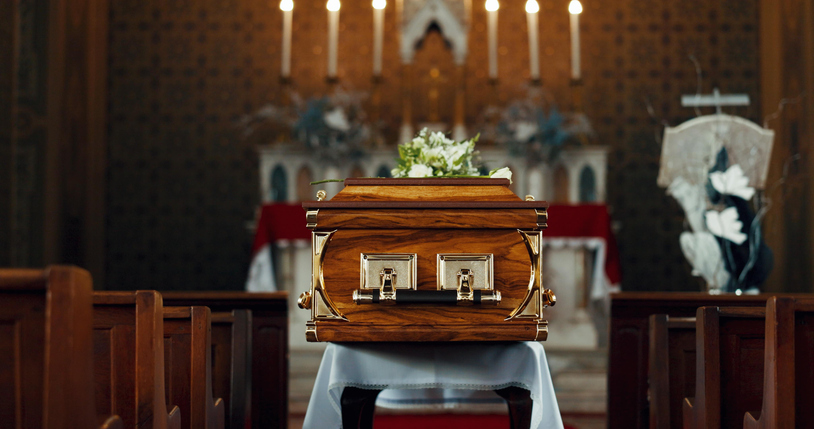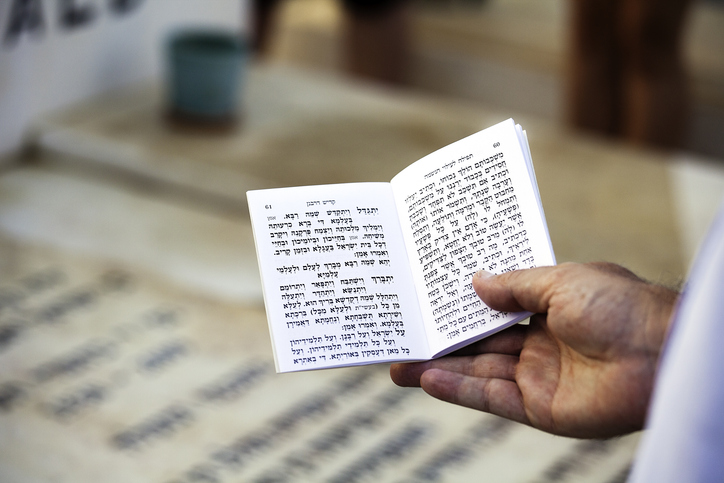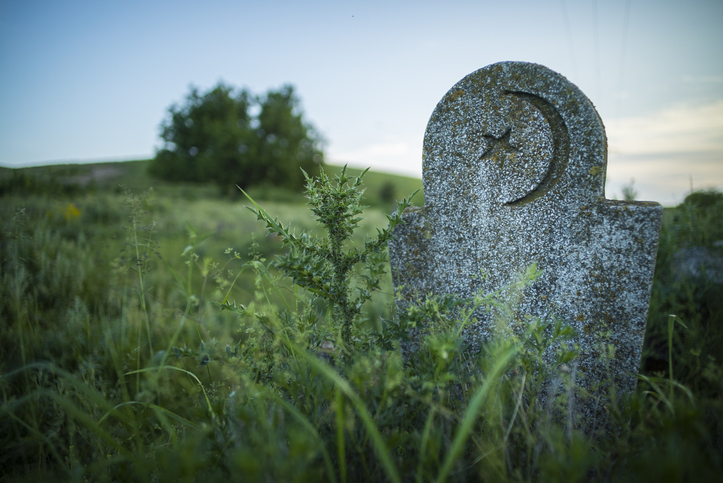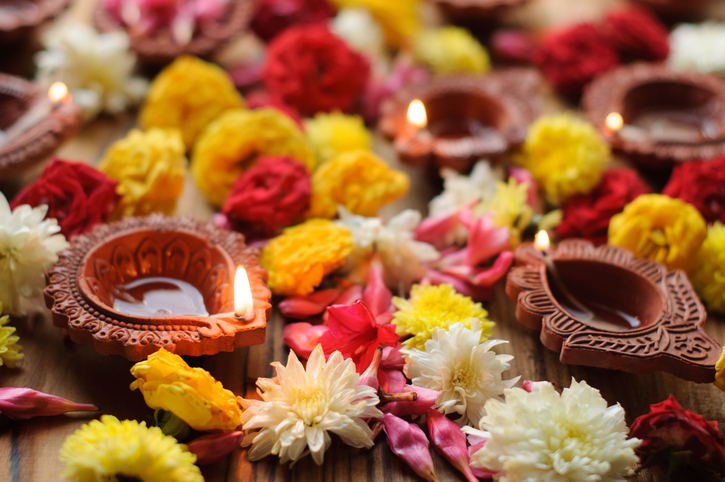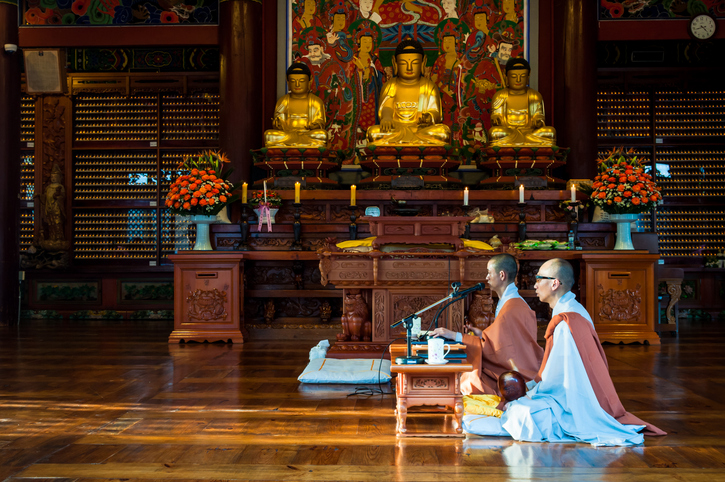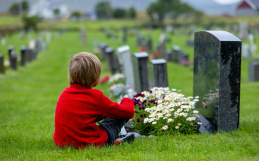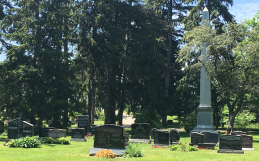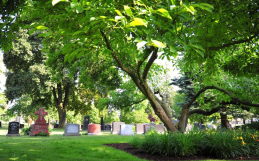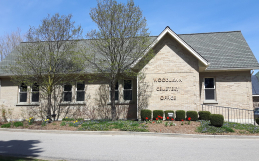Losing a loved one is one of life’s most challenging experiences, and understanding the burial rituals that honour the deceased can bring immense comfort. Yet, with so many diverse practices across cultures, it can feel overwhelming to grasp each tradition’s unique approach to honouring life and death. In this blog, we’ll explore the burial practices of five major faiths: Christianity, Judaism, Islam, Hinduism, and Buddhism. By understanding these rituals, we hope to offer insights that bring comfort and connection to those navigating this journey or supporting others in their grief. As a cemetery that serves all faiths, Woodlawn Memorial Park is proud to provide support for all rituals and requirements of any denomination.
1. Christianity
Christian burial practices vary significantly among denominations, yet they share certain common elements.
Key Practices
Funeral Services: These often include a religious service in a church, where hymns, prayers and eulogies are offered.
Burial or Cremation: Many Christians prefer burial in a cemetery, symbolizing the belief in resurrection. However, cremation is also accepted in various denominations.
Rituals of Mourning: Practices such as wakes, memorial services, and mourning periods provide support for grieving families.
Cultural Significance
The rituals emphasize hope in eternal life and the resurrection of the body, often reflecting the belief in Jesus’ resurrection.
2. Judaism
Jewish burial practices are deeply rooted in tradition, emphasizing respect for the deceased and a swift burial.
Key Practices
Tahara: This ritual washing and preparation of the body is performed by a group known as the Chevra Kadisha.
Burial: Jewish tradition calls for burial within 24 hours after death, if possible, to honour the deceased.
Shiva: After the burial, the family observes a mourning period called Shiva, lasting seven days, during which they receive visitors and reflect on the deceased’s life.
Cultural Significance
Jewish customs stress the sanctity of the body, viewing it as a vessel that must be treated with dignity and respect.
3. Islam
Islamic burial practices are guided by the teachings of the Quran and the Hadith (sayings of the Prophet Muhammad).
Key Practices
Ghusl: This ritual washing of the body is performed by family members of the same gender, followed by shrouding in simple white cloth (kafan).
Burial: Muslims aim to bury the deceased as soon as possible, ideally within 24 hours. The grave is oriented toward Mecca. Mecca, or Mekkah, is a city in Saudi Arabia that holds profound significance in Islam.
Prayer (Salat al-Janazah): A communal prayer for the deceased is held before burial, emphasizing the importance of community support.
Cultural Significance
These rituals underscore the belief in the afterlife and the importance of returning to the Earth, as well as the notion of accountability before God.
4. Hinduism
Hindu burial rituals are deeply intertwined with beliefs about reincarnation, karma, and the cycle of life and death.
Key Practices
Antyesti: The final rites or last rituals, which include bathing and dressing the body, followed by cremation.
Cremation: Most Hindus prefer cremation, believing it aids the soul’s journey in the afterlife. The body is typically cremated on a pyre.
Shraddha: Post-cremation, a series of rituals are performed to honour the deceased and ensure a peaceful transition to the next life.
Cultural Significance
Hindu rituals emphasize the belief in the soul’s immortality and the significance of karma, reflecting the interconnectedness of life and death.
5. Buddhism
Buddhist burial practices vary across different cultures and schools of thought, but they generally emphasize mindfulness and impermanence.
Key Practices
Rituals for the Deceased: Depending on the tradition, rituals may include chanting, meditation, and offerings made to honour the deceased.
Burial or Cremation: Both practices are acceptable, with cremation being more common in many cultures. The ashes may be scattered or kept in an urn.
Memorial Services: These may take place on specific anniversaries to honour the deceased and reflect on the cycle of life and death.
Cultural Significance
Buddhist rituals highlight the impermanence of life and the importance of compassion and remembrance.
The burial rituals of Christianity, Judaism, Islam, Hinduism, and Buddhism reveal the profound ways in which different cultures honour their dead and support grieving. While practices may differ, they all share a common goal: to provide comfort, respect, and a sense of closure for those left behind. Understanding these diverse rituals can foster a greater appreciation for the beliefs and traditions that shape our understanding of life and death. At Woodlawn Memorial Park, we welcome and serve all faiths as a non-denominational, charitable cemetery. Contact our office today to connect with a member of our team and explore our different service options.

